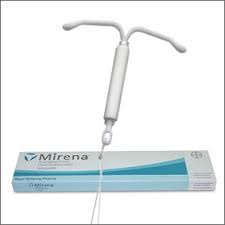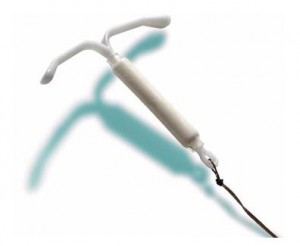
FREE MIRENA CASE EVALUATIONS: CALL 1-800-632-1404
A Mirena lawsuit filed recently claims that the birth control IUD perforated the uterus and migrated to the rectum causing unsettling harm to the plaintiff. The T-shaped device is already in the thick of controversy following over 70,000 complaints on the MedWatch reporting system. Mirena migration led to more than 4,500 serious injuries and over 2,000 uterus removal or repair surgeries in the last five years. Jenifer opted for Mirena birth control IUD in July 2012. She felt acute pain and pregnancy symptoms in the following weeks forcing her to meet her doctor. To her surprise, Jenifer was found to be pregnant despite having the IUD for over a month. Ultrasound imaging even could not discover the Mirena birth control in her uterus and pelvic area, the lawsuit claims. The plaintiff was admitted to hospital after she miscarried. Doctors performed surgeries on her a month later to locate the wandering Mirena IUD in her stomach, spleen, and liver without any success. A rectal exam necessitated by incessant abdominal pain led to the discovery of the contraceptive in the rectum of the patient. She had a Mirena removal surgery to get rid of it. Medical reports concluded that the device migrated from her uterus causing Jenifer to become pregnant and moved into her rectum. Its presence also led to her miscarriage, the Mirena lawsuit alleged. Jenifer’s Mirena lawyer has sought product liability and punitive damages from Bayer for marketing defective IUD contraceptive that caused her to undergo surgeries, miscarriage, and suffering.
Mirena Lawsuits Over IUD Migration and Injuries
Mirena is a T-shaped device implanted in the uterus releases synthetic levonorgestrel that thickens uterine membrane and prevents fertilization by sperms. However, the design defect allows the IUD to slip away from its place of implant and moved away. It results in unwanted pregnancy defeating the main objective of the users. The biggest threat is the ability of the intrauterine device to drift away and damage pelvic organs, including the uterus, that may end the chance to become pregnant again, agrees any Mirena attorney representing women injured because of the migrated IUD. About 2,000 Mirena lawsuits and research reports reported in the last few years indicate the fact that IUD migration can cause serious and debilitating injuries, such as
- perforation of uterus and internal organs
- embedding with internal organs
- damage to reproductive organs
- hysterectomy
- removal surgeries
- invasive additional surgical interventions
- surgery while become pregnancy
- vaginal hemorrhage
Mirena Lawsuits Following Research, FDA Warnings
Two medical surveys conducted in 2012 were among the first research studies to highlight the dangers of Mirena injuries. Studies, one supported by the American Public Health Association and the other sponsored by the Centers for Disease Control and Prevention, highlighted concerns about the possibility of injuries caused by the IUD birth control. Doctors favored other contraceptive options for the possibility of damages to uterus linked to Mirena. A 2014 research report in the Obstetrics & Gynecology journal links Mirena to breast cancer risk. Women using the IUD to “treat heavy periods” are at the enhanced danger of developing cancerous and non-cancerous tumors. Over a dozen of Mirena lawsuits have been filed claiming intracranial hypertension and other neurological problems due to the birth control side effects. In 2010, the FDA Bad Ad Program warned Bayer for overstating efficacy of Mirena without disclosing its potential injury side effects. Despite the warning, the manufacturer did not inform users about the IUD migration and perforation risks that now Mirena lawyers have made the keystone of their product liability claim.
Mirena Lawsuit: Contact Experienced an Mirena Attorney
With the continued fling of new Mirena lawsuits highlighting injuries and side effects associated with IUD birth control, Bayer Healthcare is bracing to face one of the biggest litigations in its history. Its claim of marketing a safe device holds little merit when contested by women subject to uterus damages, invasive surgeries, hypertension, pelvic infections, ovarian cysts, vaginal problems, post-removal birth problems, and other health problems. Victims of Mirena injuries have the right to file product liability claims and seek compensation for their suffering, health complications, life-long trauma, loss of employment, and medical expenditure. To know about the process for filing Mirena lawsuit and seeking defective medical device product liability claims citing IUD migration and perforations, please contact us or call on 1-800-632-1404.
To Contact a Mirena Injury Lawyer:
CALL TOLL FREE: (800) 632-1404 EMAIL: clicking here. FILL OUT THIS FORM FOR FREE HELP:
